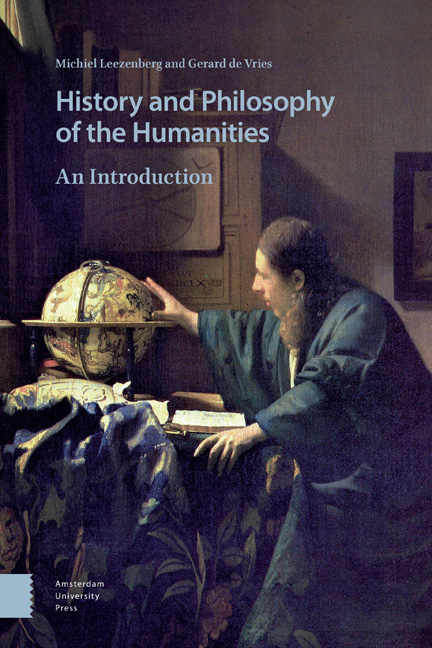6 - Developing New Disciplines
Published online by Cambridge University Press: 16 February 2021
Summary
Hegel's Philosophical History
As mentioned in the preceding chapter, the nineteenth century also witnessed the development of a professionalized academic historiography as part of the ‘humanities revolution’. This development occurred primarily in the German-speaking area. It is also during this period that a self-image of historical science developed that has remained dominant to this very day: it sees historiography as a discipline the practitioners of which try to recover hard historical facts on the basis of archival research, and in doing so try to avoid interpretations, value judgments, figments of their own imagination, and other vague or elusive and hence unscientific statements. This view of historiography, usually labelled positivist, appears to have a complex history of its own, however, and its claim to scientific status is less self-evidently valid than this appeal to the facts suggests. In this chapter, we will discuss, first, Hegel's influential philosophical view of history; second, the rise of philology, or historicizing textual criticism, as a method or technique of the humanities at large; third, the development of Leopold von Ranke's famous views as well as Nietzsche's radical critique concerning the factuality and scientific status of the historical sciences; and fourth, the emergence of sociology as a rival to both literature and the humanities.
Nineteenth-century academic historiography maintains an ambivalent relation to Hegel. On the one hand, Hegel formulated a philosophy of history based on purely speculative arguments, which were rejected by professional academic historians basing their claims on archival research and empirical facts. On the other hand, it was primarily Hegel who, more than any other, developed some of the essential notions for the modern humanities, like the notion of Volksgeist, thinking in developmental terms, the distinction between history and prehistory, and the distinction between Europe and those parts and periods of the world seen as lacking a proper history.
As already discussed in chapter 5, Hegel's first major work, the Phenomenology of Spirit (1807), proceeds from a critique of some central Kantian notions: most importantly, Hegel historicized the transcendental subject, which for Kant is abstract and formal; he did not, however, thereby reduce it to a merely contingent or accidental notion.
- Type
- Chapter
- Information
- History and Philosophy of the HumanitiesAn Introduction, pp. 159 - 180Publisher: Amsterdam University PressPrint publication year: 2018



